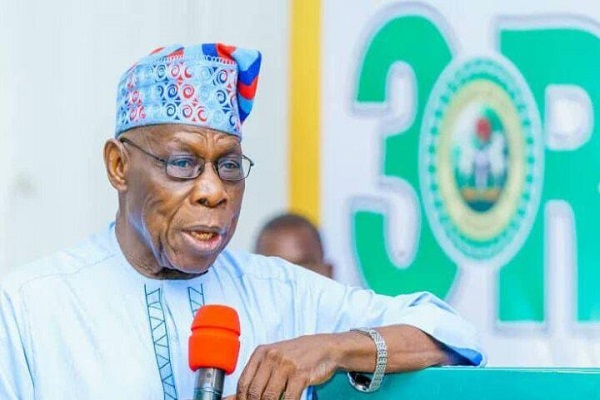
Former President Olusegun Obasanjo has denied ever pursuing a third term in office.
Speaking at the Democracy Dialogue organised by the Goodluck Jonathan Foundation in Accra, Ghana, Obasanjo said there is no Nigerian, dead or alive, who can truthfully claim he sought support for a third-term agenda.
“I’m not a fool. If I wanted a third term, I know how to go about it. And there is no Nigerian, dead or alive, that would say I called him and told him I wanted a third term,” Obasanjo said.
The former president argued that he had achieved bigger national goals, such as securing debt relief for Nigeria, which was more difficult than seeking tenure elongation.
“I keep telling them that if I could get debt relief, which was more difficult than getting a third term, then if I wanted a third term, I would have got it too,” he said.
Obasanjo warned leaders against overstaying in power, adding that the belief in one’s indispensability is a “sin against God.”
On his part, former President Goodluck Jonathan said any leader who failed to perform would be voted out of office if proper elections were conducted.
Jonathan described electoral manipulation as one of the biggest threats to democracy in Africa, warning that unless stakeholders come together to reform it, the system may collapse.
His words: “Democracy in the African continent is going through a period of strain and risk of collapse unless stakeholders come together to rethink and reform it. Electoral manipulation remains one of the biggest threats in Africa.
“We in Africa must begin to look at our democracy and rethink it in a way that works well for us and our people. One of the problems is our electoral system. People manipulate the process to remain in power by all means.
“If we had proper elections, a leader who fails to perform would be voted out. But in our case, people use the system to perpetuate themselves even when the people don’t want them.
“Our people want to enjoy their freedoms. They want their votes to count during elections. They want equitable representation and inclusivity. They want good education. Our people want security.
“They want access to good healthcare. They want jobs. They want dignity. When leaders fail to meet these basic needs, the people become disillusioned.”
The dialogue was also attended by Omar Touray, president of the ECOWAS commission, and Matthew Hassan Kukah, bishop of Sokoto diocese, among others.
Speakers stressed that democracy in Africa must go beyond elections to include accountability, service, and discipline.
